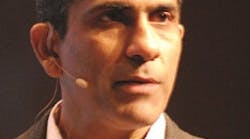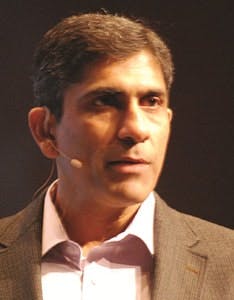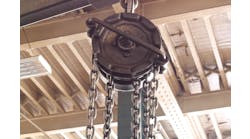Honeywell continues to introduce new technologies, build services capabilities and even reorganize itself to better serve the changing automation needs of the global process industries. For example, says Vimal Kapur, president of Honeywell Process Solutions, "We offer new solutions that collectively increase the operational knowledge of those running automation systems, which translates into improved process safety, reliability, security and sustainability."
Meanwhile, the company's Lean Execution for Automation Projects (LEAP) methodology is helping to speed execution of increasingly complex projects across industries. And, with the recent move of Honeywell Process Solutions into the company's Performance Materials & Technology division, execution for projects based on process technology from sister company UOP will progress even faster and operate more optimally from day one, according to Kapur.
"It's a dramatic shift, and it's delivering significant benefits." Vimal Kapur, president of Honeywell Process Solutions, on how the company's Lean Execution of Automation Projects (LEAP) methodology is helping to speed project execution.
LEAP for UOP processes will be introduced over the next two years; UOP knowledge embedded in HPS automation tools will reduce overall project costs and accelerate first production, as well as improve operational uptime, yield and energy consumption. "These pre-engineered solutions will leverage process knowledge to create new value," he adds.Kapur's remarks were addressed to more than 1,000 attendees from 70 countries and 450 companies, who assembled in November in The Hague, the Netherlands, for the 2014 Honeywell Users Group (HUG) meeting for its customers in Europe, the Middle East and Africa (EMEA). "This region represents particularly diverse industry requirements," Kapur says, referencing oil and gas opportunities in the North Sea, aging production assets in Western Europe, mining and oil and gas development in Africa, pulp and paper in Scandinavia, midstream oil and gas in the CIS and Caspian region, and batch and specialty chemicals development in central Europe.
Interestingly, Honeywell sees capital expenditure growth being spread more evenly across the globe in the next several years. China has cooled a bit, but growth continues in the Americas and Europe's recovery will gather steam. All this points to roughly 6% annual capital spending growth in each of the key regions of the Americas, EMEA and Asia through 2020, Kapur predicts.
Meanwhile, process industry projects continue to grow bigger and more complex, resulting in larger capital outlays and longer project lead times. "Delivering return on investment becomes more challenging as time and expense grow," Kapur says. "We're doing all we can to be an enabler of faster execution."
Two key technology enablers, in turn, underpin Honeywell's ability to deliver projects more quickly, Kapur reports. These include cloud computing and universality, both of which are borrowed from the commercial IT industry that often blazes the trail for subsequent automation and operational technology (OT) adoption. "We're leveraging data centers that continue to be deployed around the world," Kapur explains. And, just as purpose-built phones, cameras and navigation aids have yielded to universal smartphones in our personal lives, "We expect that in our work, too," Kapur adds.
Much like the iPhone simplified the management of mobile information needs, Universal I/O from Honeywell streamlines the management of change during control system design and configuration, Kapur says. Meanwhile, the cloud has made it possible to bring the project to the people, not the people to the project. "LEAP is a convergence of these ideas that together reduce project time and effort," Kapur explains. "It's a dramatic shift and it's delivering significant benefits."





